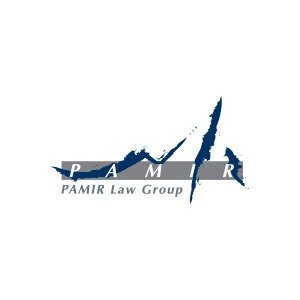Best Corporate Governance Lawyers in Taipei
Share your needs with us, get contacted by law firms.
Free. Takes 2 min.
List of the best lawyers in Taipei, Taiwan
About Corporate Governance Law in Taipei, Taiwan
Corporate governance in Taipei, Taiwan refers to the system of rules, practices, and processes by which companies are directed and controlled. It covers how a corporation’s objectives are set and achieved, how risk is monitored and assessed, and how performance is optimized. Taipei, as the capital and business hub of Taiwan, adheres to comprehensive frameworks influenced both by domestic legislation and international best practices. These rules apply to all business entities incorporated or operating in Taipei, with special attention to publicly listed companies. The primary goal of corporate governance is to ensure accountability, fairness, and transparency in the company's relationship with its stakeholders, including shareholders, management, customers, suppliers, financiers, government, and the community.
Why You May Need a Lawyer
Legal issues in corporate governance can be complex, and seeking a lawyer’s advice may be necessary in several scenarios. These include company formation, drafting and reviewing corporate bylaws, managing conflicts of interest, handling mergers and acquisitions, and ensuring compliance with disclosure and transparency requirements. Lawyers are also essential when responding to regulatory audits, defending against allegations of mismanagement or fraud, and negotiating with shareholders or directors. In Taipei, where compliance with the local Companies Act and Financial Supervisory Commission guidelines are strictly enforced, expert legal guidance is crucial for navigating potential disputes and staying up to date with evolving regulations.
Local Laws Overview
Corporate governance in Taipei is primarily regulated by the Taiwan Companies Act, the Securities and Exchange Act, and specific regulations issued by the Financial Supervisory Commission (FSC). The Companies Act sets out the basic principles for establishing, managing, and dissolving corporations. It provides requirements for board structure, meetings, and fiduciary duties of directors and supervisors. The Securities and Exchange Act is particularly critical for publicly-listed companies, imposing more stringent disclosure and transparency standards. The FSC regularly issues guidelines and best practice principles, such as those relating to board independence, internal audit mechanisms, and shareholder rights. In addition, the Taiwanese Corporate Governance Best Practice Principles serve as a benchmark for companies aiming to enhance their governance standards.
Frequently Asked Questions
What is the general structure of corporate governance in Taipei?
Companies in Taipei typically follow a structure comprising a board of directors, supervisors or audit committees, and shareholders meetings. Public companies must adhere to stricter governance practices in line with FSC regulations.
Are independent directors required for companies in Taipei?
Independent directors are mandatory for all listed companies and certain financial institutions as per FSC regulations. Private companies may choose to appoint them voluntarily for enhanced governance.
What are the main responsibilities of directors in a Taiwanese company?
Directors must act in good faith, exercise due care, and avoid conflicts of interest. They are responsible for ensuring compliance with statutory obligations and protecting the interests of the company and stakeholders.
How often do companies need to hold board meetings?
Boards are legally required to meet at least once every quarter, but articles of incorporation or internal regulations may stipulate more frequent meetings based on business needs.
What are the disclosure requirements for companies in Taipei?
Listed companies must make timely disclosures regarding financial status, material transactions, and changes in board or management. Disclosure requirements are specified by the Companies Act and the Securities and Exchange Act.
How are shareholder rights protected in Taipei?
Shareholders have the right to attend meetings, propose motions, elect or remove directors, and access certain company information under the Companies Act and related regulations.
What is the role of the Financial Supervisory Commission?
The FSC is the main regulatory body overseeing corporate governance, securities, and financial services. It issues compliance guidelines, investigates misconduct, and enforces penalties for violations.
Can foreign investors participate in corporate governance?
Yes, foreign investors may serve as directors or supervisors and have shareholder rights, subject to the same legal requirements as locals. Certain restricted industries may have additional limitations.
How are conflicts of interest managed in companies?
Directors must disclose potential conflicts and abstain from voting on related matters. Companies are encouraged to establish internal protocols for identifying and addressing conflicts of interest.
What are the penalties for breaching corporate governance laws?
Penalties range from administrative fines and corrective orders to civil liability and criminal prosecution, particularly in cases of fraud, mismanagement, or serious breaches of fiduciary duty.
Additional Resources
- Financial Supervisory Commission (FSC): The primary regulatory authority for corporate governance and financial activities in Taiwan. - Taiwan Stock Exchange (TWSE): Provides regulatory guidance and resources for listed companies. - Taiwan Corporate Governance Association: Offers training, publications, and support on governance matters. - Ministry of Economic Affairs: Handles company registrations and legal queries for businesses in Taipei. - Law firms and legal aid centers specializing in corporate and commercial law can provide tailored advice and support.
Next Steps
If you need legal assistance with corporate governance in Taipei, start by gathering all relevant company documents and outlining your specific concerns. Consider consulting a lawyer who has expertise in Taiwanese corporate law and understands the local regulatory landscape. You may also contact the Financial Supervisory Commission or relevant trade associations for initial guidance. Scheduling a legal consultation will help you clarify your rights, obligations, and the best course of action to ensure your company is compliant and well-governed.
Lawzana helps you find the best lawyers and law firms in Taipei through a curated and pre-screened list of qualified legal professionals. Our platform offers rankings and detailed profiles of attorneys and law firms, allowing you to compare based on practice areas, including Corporate Governance, experience, and client feedback.
Each profile includes a description of the firm's areas of practice, client reviews, team members and partners, year of establishment, spoken languages, office locations, contact information, social media presence, and any published articles or resources. Most firms on our platform speak English and are experienced in both local and international legal matters.
Get a quote from top-rated law firms in Taipei, Taiwan — quickly, securely, and without unnecessary hassle.
Disclaimer:
The information provided on this page is for general informational purposes only and does not constitute legal advice. While we strive to ensure the accuracy and relevance of the content, legal information may change over time, and interpretations of the law can vary. You should always consult with a qualified legal professional for advice specific to your situation.
We disclaim all liability for actions taken or not taken based on the content of this page. If you believe any information is incorrect or outdated, please contact us, and we will review and update it where appropriate.
















